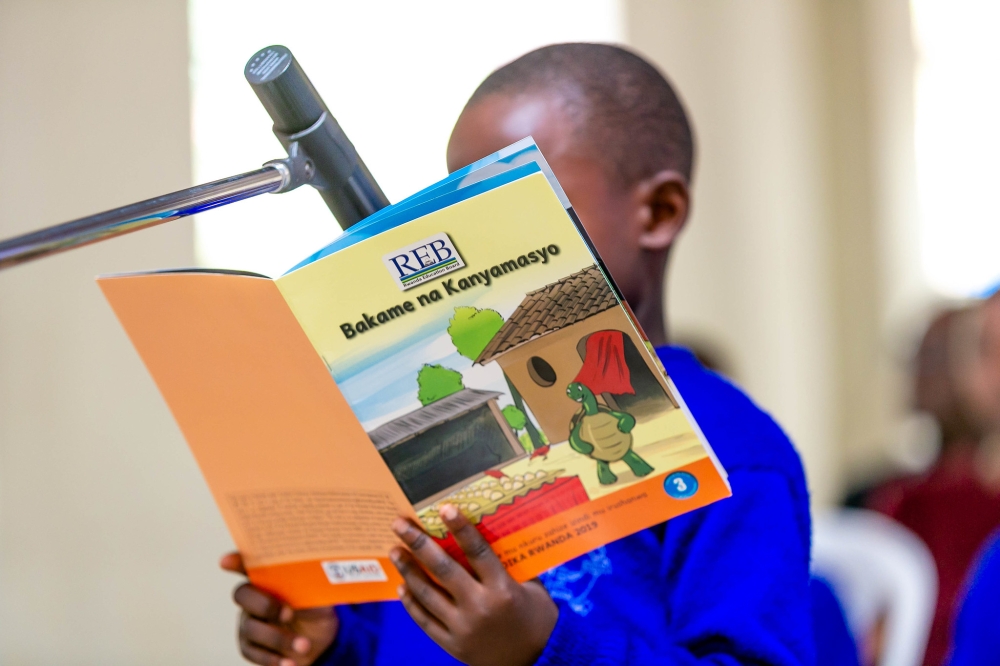

While content digitization aligns with technological growth, many Rwandan children’s book authors and publishers remain cautious about fully embracing it due to challenges like high production costs, less internet connectivity in rural areas, and uncertainty about returns on investments.
ALSO READ: Writers weigh in on Rwanda’s reading culture
Digital literature, also known as electronic literature, is a form of writing that is characterised by its creation and experience being on a digital platform.
According to authors and publishers of children’s books, shifting from traditional printed books to digitized content is a necessity that aligns with today’s technological growth. However, they remain cautious to take action to embrace this modern shift.
Authors and publishers who spoke to The New Times revealed that content digitization is expensive, and the costs incurred during content production could not be returned with an income.
ALSO READ: Literary enthusiasts on promoting reading culture in schools
Delice Umuhire, a publisher and vice chairperson of Rwanda Children’s Book Organization, a union of Rwandan publishers, highlighted the discouraging costs of digitization and the difficulty in predicting income since the market is still growing.
"The first challenge is that digitizing is very expensive. So, if the process is expensive, there comes again the element of setting affordable prices for the content to be bought. People do not understand it yet, so, it is very hard. We are just being cautious,” she said. "Of course, we are in business, and we can’t release a product unsure of whether it will make us money.”
According to Fiston Mudacumura, the founder of Mudacumura Publishing House, digitizing a children’s book entails several elements including converting it into formats such as ePub, short for electronic publication, which is a widely used e-book file format. Other digital formats include audiobooks, videos, animations, game applications, and "even AR/VR (Augmented Reality/Virtual Reality) versions.” Depending on the format, the costs can exceed Rwf1 million, he said.
ALSO READ: Developing children’s literature that depicts local realities
Sharing this concern, Jean de Dieu Munyurangabo, the founder of Kibondo Edition, a company that specializes in publishing children’s books focusing but not limited to kids under the age of six, echoed similar concerns, pointing out that few families can afford digital content for their children.
ALSO READ: Part II: Developing Children’s Literature that depicts local realities
"There are even very few families that can afford the consumption of this digital content for their kids to read digital books,” he said.
Stella Murungi, a tech enthusiast and author of ‘Adventures of Feza,’ pointed out issues related to connectivity and device availability in marginalized communities.
ALSO READ: What should be done to make children read more?
"Another challenge for continents like ours is connectivity and device penetration to the most marginalized communities, therefore reaching some audience would be a challenge,” she added.
She added that payment processes on digital platforms like Amazon remain complex for African authors, further complicating efforts to distribute digital books.
Traditional versus digital formats
Reflecting on nurturing the book-reading culture in young kids, Munyurangabo argued that printed books inspire the young ones to passionately love reading than digital content.
"Maybe it is just me who is old, but I think digital books do not encourage kids to love the book,” he said.
"A kid may listen to the story or folklore on a digital platform, but they wouldn’t have a love for what we really call a real book. If a kid can hold the book and flip pages it gives incomparable interaction and connection, and in a digital world, such kind of affection for the book is non-existent.”
On the contrary, Umuhire argued that kids also enjoy listening in addition to reading and it would help those unable to read yet.
"Kids actually do enjoy it, because when a book is changed to audio and the kid is able to listen to it, they really love it. It is also helpful to kids who cannot yet read because they can now watch and listen to the content,” she said.
ALSO READ: Call for authentic children's literature to nurture African values
According to Mudacumura, both traditionally printed books and digitized books are crucial to a kid’s growth.
"Both formats have their place, and children enjoy them in different ways. Digital platforms offer interactivity and visual stimulation, which kids naturally gravitate towards,” Mudacumura said.
"I believe offering both options ensures that children benefit from the strengths of each medium, catering to various preferences and situations.”
Innovative solutions and progress
Despite the challenges, Rwandan publishers are exploring innovative ways to digitize content.
Murungi highlighted the creative possibilities offered by digital formats.
"By including features such as animations, gamified content, and sound effects, this changes how storytelling is done and gives the author more variety and creativity but also a wider audience to consume meaningful content,” she said.
Mudacumura highlighted efforts to address connectivity issues in rural areas.
"We have started using supermarkets in rural areas to have a book point of sale, we are building partnerships with schools, ECD (Early Children Development) centers, and community libraries to provide offline content; mainly books,” he said.
He highlighted other initiatives that include distributing USB drives and SD cards loaded with digital books and audio stories and airing audiobooks on Radio Rwanda and community radio stations during literacy weeks.


